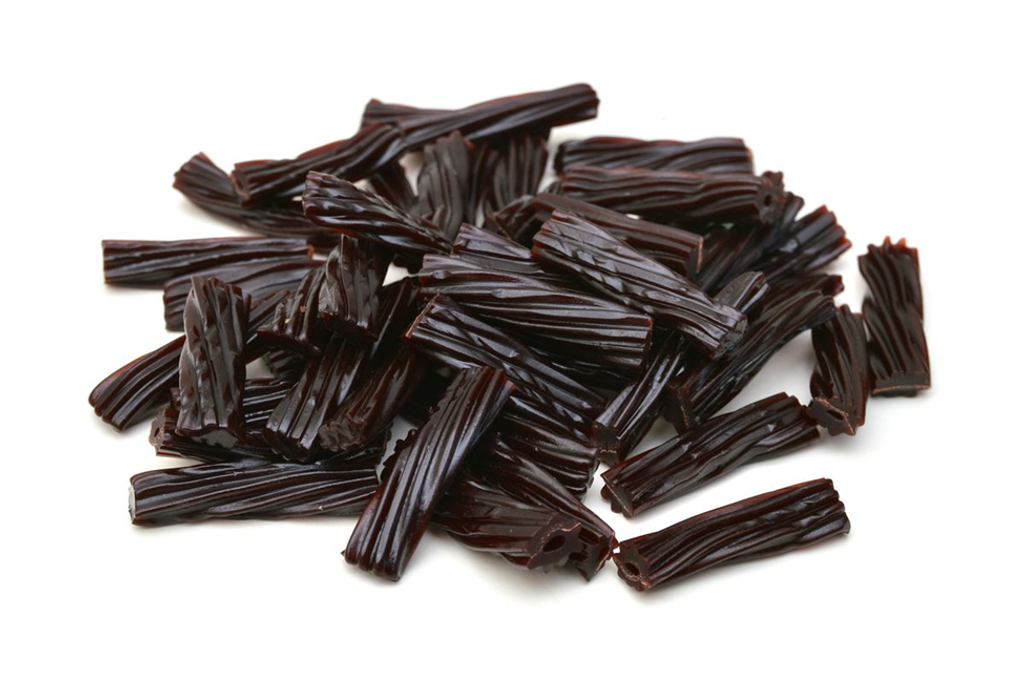Doctors in Massachusetts report that a construction worker’s fondness for black licorice led to his untimely death. The 54-year-old man, whose name remains undisclosed, consumed approximately one and a half bags of black licorice daily.
Despite showing no prior symptoms, he suddenly experienced cardiac arrest while at a fast-food restaurant. Doctors reporting on the case in the New England Journal of Medicine attributed his sudden death to glycyrrhizic acid, a compound found in licorice.
Medical Analysis and Glycyrrhizic Acid’s Impact
Emergency medical personnel discovered that the man was suffering from ventricular fibrillation, a life-threatening heart rhythm disorder. He received CPR and briefly regained consciousness before being transported to the hospital.
“We learned that this patient has a poor diet that heavily features candy. Could his illness be linked to his candy consumption?” Dr. Elazer R. Edelman pondered.
He explained that studies have shown glycyrrhizic acid, the active ingredient in licorice, can cause hypertension, hypokalemia, metabolic alkalosis, fatal arrhythmias, and renal failure—all conditions observed in this patient.
Hypokalemia, he noted, is a condition where blood potassium levels drop to dangerously low levels.
- Are sugary drinks a cancer risk?
- Ultra-processed foods are tied to early mortality.
- Diets slashing life expectancy by a fifth.
The patient had recently made a significant change in his sweet preferences. Just weeks before his passing, he switched from red fruit-flavored twists to black licorice. Dr. Andrew L. Lundquist concurred in the report, confirming that black licorice was the culprit.

Regulatory Challenges and Public Health Concerns on Licorice
According to the Food and Drug Administration (FDA), black licorice contains glycyrrhizin, a compound derived from licorice root. Overconsumption of licorice root or licorice-flavored candies can be hazardous because glycyrrhizin depletes the body’s potassium levels. This can result in high blood pressure and abnormal heart rhythms, as reported by Live Science.
However, the FDA does not regulate glycyrrhizic acid concentration by the ounce, making it difficult to determine how much is in a bag of black licorice. According to the FDA, consuming as little as 57 grams (2 ounces) of glycyrrhizic acid daily can lead to heart rhythm issues within just two weeks, particularly for individuals over 40.
In this particular case, the man’s critically low potassium levels triggered severe heart problems. He received treatment to restore his potassium levels and multiple other interventions in the intensive care unit, including being placed on a ventilator. Despite these efforts, the man tragically passed away 32 hours after being admitted to the hospital.
Dr. Robert Eckel, a cardiologist at the University of Colorado and former president of the American Heart Association, points out that licorice sticks are not the only sources of glycyrrhizic acid. “It could be jellying beans, licorice teas, many over-the-counter products,” said Eckel, who was not involved in the man’s case. “Even some beers, like Belgian beers, contain this compound.”
Broader Implications and Safety Recommendations
The NHS concurs that excessive consumption of black licorice can pose risks to individuals and emphasizes, “Regardless of age, it’s advisable to steer clear of consuming large quantities of black licorice within a short timeframe.”
Jeff Beckman, spokesperson for the Hershey Company, the manufacturer of Twizzler licorice twists, affirmed, “All of our products are safe for consumption and are formulated in complete accordance with FDA regulations.” He further highlighted the importance of moderation in enjoying all foods, including confectionery.
References
Man dies after eating bags of black licorice every day [Internet]. Accessed on May 23, 2024. Available at: https://www.livescience.com/black-licorice-death.html
About Docquity
If you need more confidence and insights to boost careers in healthcare, expanding the network to other healthcare professionals to practice peer-to-peer learning might be the answer. One way to do it is by joining a social platform for healthcare professionals, such as Docquity.
Docquity is an AI-based state-of-the-art private & secure continual learning network of verified doctors, bringing you real-time knowledge from thousands of doctors worldwide. Today, Docquity has over 400,000 doctors spread across six countries in Asia. Meet experts and trusted peers across Asia where you can safely discuss clinical cases, get up-to-date insights from webinars and research journals, and earn CME/CPD credits through certified courses from Docquity Academy. All with the ease of a mobile app available on Android & iOS platforms!






